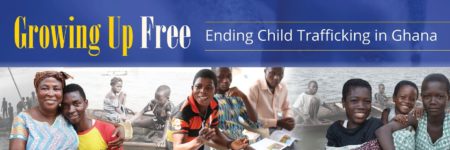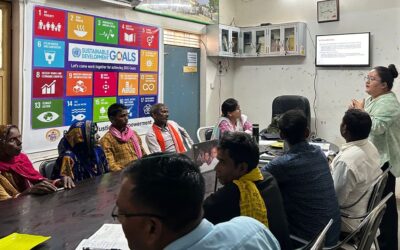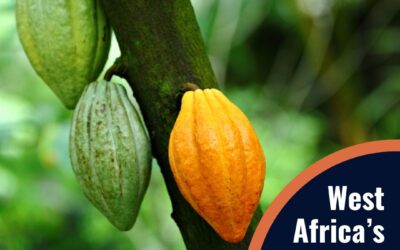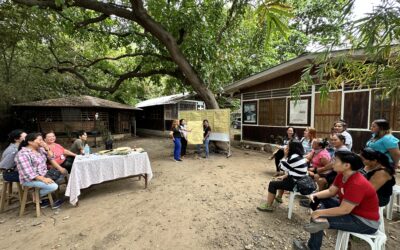Owning livestock can transform a family’s future in rural Ghana. An impoverished farmer can sell the cow’s milk, and use its dung for fertilizer and biofuel.
Of course, it’s never right to sell your son to get a cow. But that’s what Felix Kaletsi’s father did. A trafficker offered Felix’s dad an upfront payment of GHs50 (US $11) and the promise of a cow if the boy would work on fishing boats for four years. Feliz was just six years old.
“My father gave birth to me so that I could be used to make money for him,” Felix says.
Felix joined the many children trafficked into fishing slavery on Lake Volta, the world’s largest reservoir. The children are trapped, frequently beaten, unable to escape. Sudden storms easily capsize the rickety small fishing boats, killing all aboard. Slaveholders force the children to work day and night. Felix could not exercise his basic rights to education and freedom. He didn’t even know he had those rights, or how to call out for help.
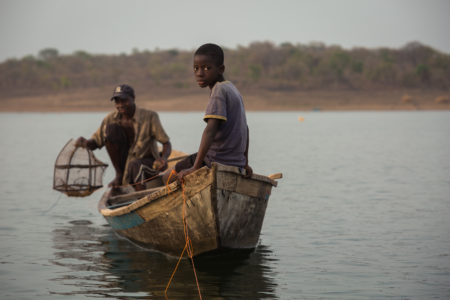
Child fishing slavery in Ghana is dangerous and illegal | Photo: FTS/Teague
After four long years, Felix did go home. The slaveholder voluntarily returned him to his village and gave Felix’s father a cow as promised. But the fact that the trafficker honored his end of the deal doesn’t make it right — or legal. He had no right to force his son into hard labor.
The Free the Slaves Growing Up Free project has intervened in Felix’s case. Our front-line partner organization, International Needs Ghana (INGH), became aware of the situation after organizing a Community Child Protection Committee in Felix’s village. The committee is a key element of the Free the Slaves Community Liberation Model. The committee helps villagers learn about child rights and take action when these rights are violated. Felix’s case has been reported to the Anti-Human Trafficking Unit of the Ghana Police Service.
And Felix has been sent to a Free the Slaves-funded shelter. He was traumatized by his years on the lake, and needed comprehensive rehabilitation to facilitate his reintegration. He is currently receiving the medical, psychological, and educational support needed to resume a normal childhood.
Case workers say he is responding well.
Felix’s story underscores how the Free the Slaves Growing Up Free Project is building community resistance to child trafficking and rescuing trafficking victims from slavery on Lake Volta. The initiative supports the formation and implementation of a comprehensive, integrated plan for prevention, rescue, prosecution, rehabilitation, reintegration, education, wrap-around social services, the development of market-based livelihoods for vulnerable families, and the formation of communities united in the determination to drive slavery from their midst. Learn more here.
This story was reported by the staff of INGH in Ghana, and written for the FTS Blog by Michelle Wladich.

